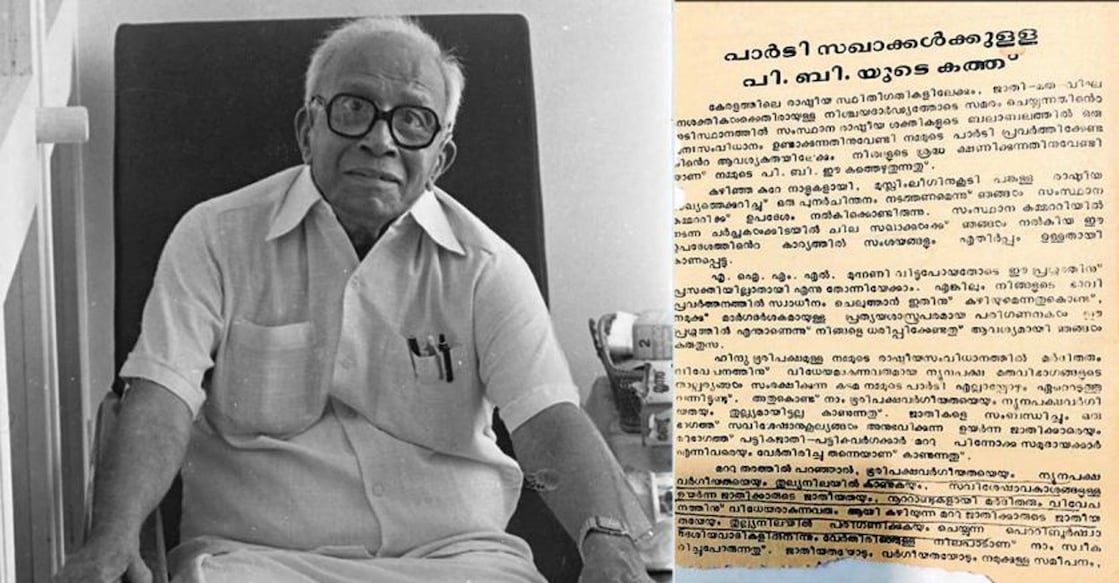Why CPM is iffy about ties with League? An EMS letter is telling

Mail This Article
Thrissur: The political contours in Kerala may get reshaped if one of the large parties opts to switch sides. Of late murmurs on Muslim League's likely predilections have kept political observers on the edge, especially with the apparent softening of the stand adopted by the CPM towards the Congress ally in the United Democratic Front fold.
For instance CPM's Kerala State secretary M V Govindan opined the other day that debates in older times regarding relations with the League and the decision not to have any truck with that party were now outdated. In this context a letter sent by party chief EMS Namboodiripad in the mid-1980s is telling and hence has triggered a debate. It explains how relations with the League earlier had become a liability for the left party.
The All-India Muslim League (All-India League) which was formed after splitting away from the Muslim League was part of the Left Front in the 1980s. The mass support of the CPM came under scrutiny after the Hindu Munnani candidate came second and the Left Democratic Front candidate emerged third in Thiruvananthapuram in the 1984 general election which followed the assassination of Indira Gandhi in 1984.
Subsequently, the politburo was of the opinion that the impression among the people that the CPM was no different from the other bourgeois parties had become stronger. The politburo took the stand that for the being, political alliances with the League should be avoided.
It would not augur well for the party to have an alliance with the League, stated EMS in the letter sent to the party organisations in his capacity as the general secretary.
The crux of the letter
The letter, which was written on the basis of the discussions conducted in the politburo, while referring to the Vijayawada resolution, says: “Our weakness, caused by our activities conducted in alliance with the Muslim League from 1964-65, has been that the party has failed to expose their parochial religious fundamentalism and regressive policies. It is an unavoidable obligation for Marxists-Leninists to oppose religious fundamentalism and regressive ideas. The approach we took towards the Muslim League and the understanding that we had with it as part of the political strategy, should not have been nurtured.”
“It is not permissible for a Marxist-Leninist party to form a political alliance with groups or organisations that are based on the difference of class. Owing to this, there was confusion among those who were truly progressive in that community and they were forced to join the League’s ranks. If we allow such alliances, those who come as our partners will betray and leave us. If we have to overcome this crisis, we have to free ourselves from the trap of opportunistic alliances with caste and religious organisations, parties and others like them,” the letter states.
The alternative guideline prepared under MV Raghavan was on a dissident note against the letter. The note, which supported an alliance with the League, was debated and rejected by forums, including the Party Congress. The question that is being raised in the CPM again is, whether the same political strategy is being put forth under the leadership of MV Govindan.
The Indian National League, which split away from the League, was kept out of the Left Front for nearly a quarter of a century in keeping with this stand. But, at last, it reached the LDF camp.

